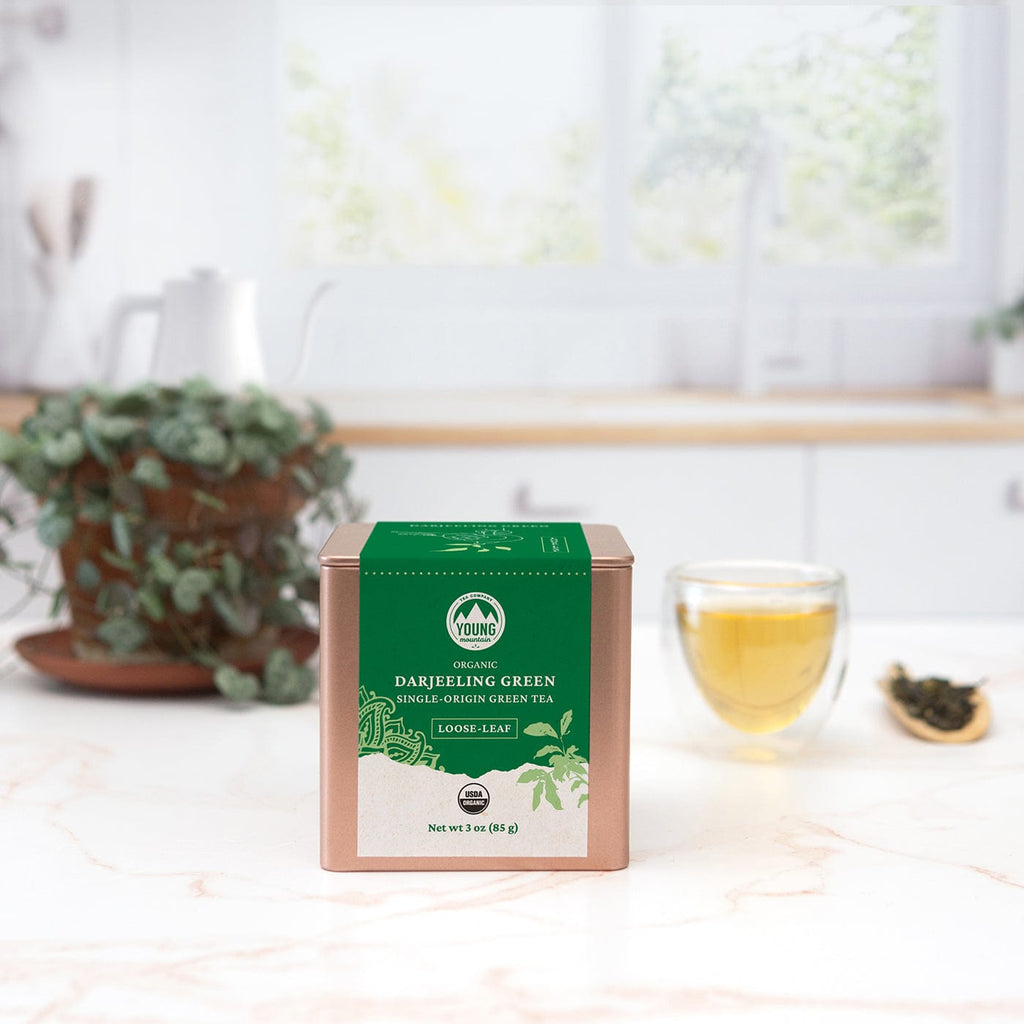
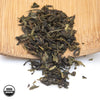
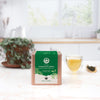
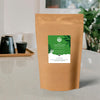
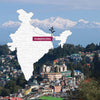

$19.99
Taste: Toasted rice & roasted butternut squash
Origin: Darjeeling, Northeastern Indian Himalayas
Tea Maker: Selimbong Tea Garden
Infusion Suggestions:
Steep 1 0.5 Tbsp /2.5 g | 8 oz | 180° F | 2.5 min
Steep 2 8 oz | 185° F | 3 min
Certifications: USDA Organic
Contains Caffeine
Darjeeling Green: Darjeeling Green is a floral green tea without astringency, crafted by Selimbong Tea Garden, a leader in sustainable and award-winning tea production. Nestled on the Indo-Nepal border, Selimbong’s high-altitude location (1200–1600 meters), rich soils, and shaded environment nurture tea plants that produce smooth and layered flavors.
Tasting Notes: Unlike many green teas, Darjeeling Green does not carry the typical astringency found in stronger green teas like Sencha. This tea offers a full body with smoky grain notes reminiscent of toasted rice, rounded off with a sweet, floral finish and hints of roasted butternut squash. Fans of Jasmine Green Pearl will appreciate its nuanced profile.
Production: Darjeeling Green is harvested during the summer monsoons. Leaves are hand-plucked and processed using time-honored techniques that retain their essential oils. This includes heating to halt oxidation, rolling to break cell walls, and a final drying phase. Once dried, the teas are carefully hand-sorted before joining our collection.
Region: Darjeeling’s mountainous terrain, sharp ascents, and ecological diversity create ideal tea-growing conditions. As rain clouds from the Bay of Bengal collide with the Himalayas (These heavy rains are actually what gives the region its name; “Darjeeling” means “Land of the Rolling Thunder” in Tibetan), tea bushes thrive under alternating heavy rainfall and strong sunlight.
Recognizing the potential for high elevation specialty teas, Darjeeling tea makers have focused on quality since they began crafting teas there in the 1850s and have built a tea tradition that fetches some of the highest prices in the world. Darjeeling is also a melting pot of South Asian ethnicities, home to Tibetans, Nepali, and Indians. Under colonialism, the mild mountain temperatures made Darjeeling a perfect retreat for British soldiers, which is why the town was originally built. Today, in the shadows of Mt. Everest and Mt. Kanchenjunga, the world’s third highest peak, Darjeeling remains a destination for tea lovers and trekkers alike.
Read our blog about this region here.
Tea Makers: Selimbong Tea Garden, also known locally as "Sulbung" or "Land of the Orange Trees," is located near the Sukhia Forest Reserve and the Balasun River, known for its lush environment and conservation programs, including a pangolin breeding initiative in partnership with WWF. A part of the Darjeeling tea legacy since 1866, Selimbong is now managed by Tea Promoters India. The garden is celebrated for its innovative practices and commitment to sustainability.
Impact: Selimbong Tea Garden’s biodiversity and eco-friendly practices enhance the health and resilience of its tea plants. With its fertile soils, shaded groves, and conservation efforts, Selimbong sets the standard for sustainable tea production in Darjeeling. The garden’s focus on preserving wildlife, cultivating rare orchids, and producing high-quality teas has earned it multiple awards and global recognition.
Packaging: Our commitment to sustainability means we offer our teas in several types of packaging: